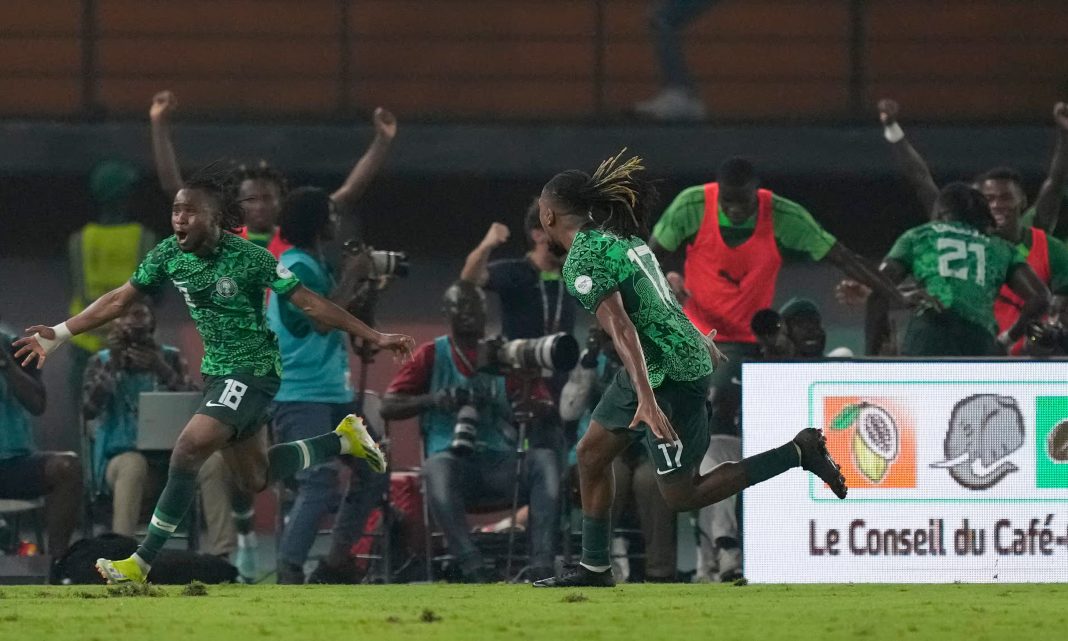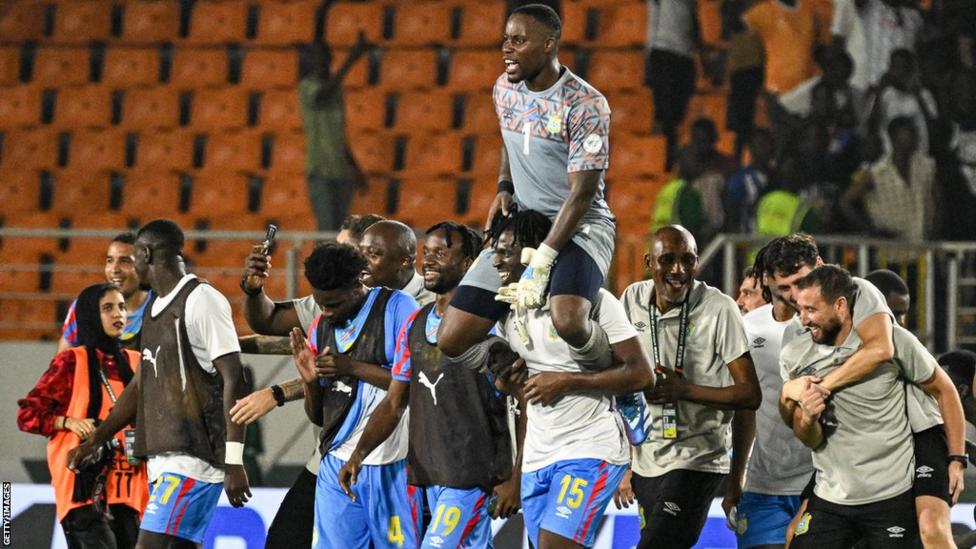Maybe in football knockouts, the outcome is all that matters. You pass through, you exit, and everything else is noise. But that’s particularly the case when the match is the greatest rivalry in contemporary sub-Saharan African football. It was never going to be the most beautiful game, especially with the dew-covered pitch and maybe the twenty-five minutes of watering it before kickoff.
The entire ninety minutes won’t be watched by many individuals in awestruck fashion. It is irrelevant, though. Cameroon is eliminated from the Africa Cup of Nations; Nigeria advances to play Angola in the quarterfinals.
The superior team was Nigeria. The line was intelligently and energetically led by Victor Osimhen. Ademola Lookman dealt nicely with his two goals. The star player in the middle of the field was Alex Iwobi. Against Frank Magri, William Troost-Ekong was a massive force at the back, completely in control. Nigeria has already won three straight, and the complaints from supporters and the media are starting to give way to grudging admiration.

The closing few minutes of Cameroon’s games were practically flurries as their extreme terror reached unanticipated heights. They caused problems for Senegal and survived the chaotic end of the match against the Gambia, but even with Vincent Aboubakar on the field, they could only generate one corner and no shots on goal. Although the Cameroon team is not very strong, manager Rigobert Song is undoubtedly on borrowed time following the team’s World Cup collapse.
Song has come under fire for serving primarily as a symbolic leader, while Augustine Simo, his assistant, plans the strategy. He added, “You have managers, and you have coaches.” “I am a manager, which entails just that. A national team is managed, not coached. However, the back and forth regarding André Onana scarcely seems decisive. The Manchester United goalkeeper didn’t make a single save in one game after all the drama.
Both Nigeria and Cameroon had appeared like throwbacks, lumbering giants playing in the manner of a decade ago, blocking holes, keeping it narrow and compact, and hoping for a set play or a flash of inspiration to spark something in a competition known for an uncommon openness.
A derby atmosphere in a pleasingly packed stadium, a sense of a match that would resonate beyond decades regardless of the result, two sides struggling to find their identity and position in the contemporary context… Maybe it was always going to be a bit sly.
Even though it was practically inevitable that the opening goal came from an error nine minutes before halftime, Osimhen’s awareness and selflessness were still required for it to happen. Despite wasting multiple opportunities and only managing one goal throughout the group stage, the Napoli striker is without a doubt the main player in this Nigerian assault. After trapping Oumar Gonzalez in possession, he displayed incredible power to hold the midfielder off before passing the ball to Lookman, who, on the wet turf, slithered over the line with his shot as a panicked Gonzalez tried to get back.
Late in the game, Cameroon committed men forward, and Lookman scored his second from Calvin Bassey’s cross. Saying that Nigeria’s game management after the opener was the reason behind their lack of success would be a little misleading, as it would suggest they adopted a different strategy. Instead, they continued to maintain their sense of control through their natural style of safety-first probing under Peseiro, with their threat remaining limited to what Osimhen could forage.
which was more than Cameroon could muster, even though it may not have been much.
Participate in Startimes & Bangsports events and share 100k USD bonuses.


